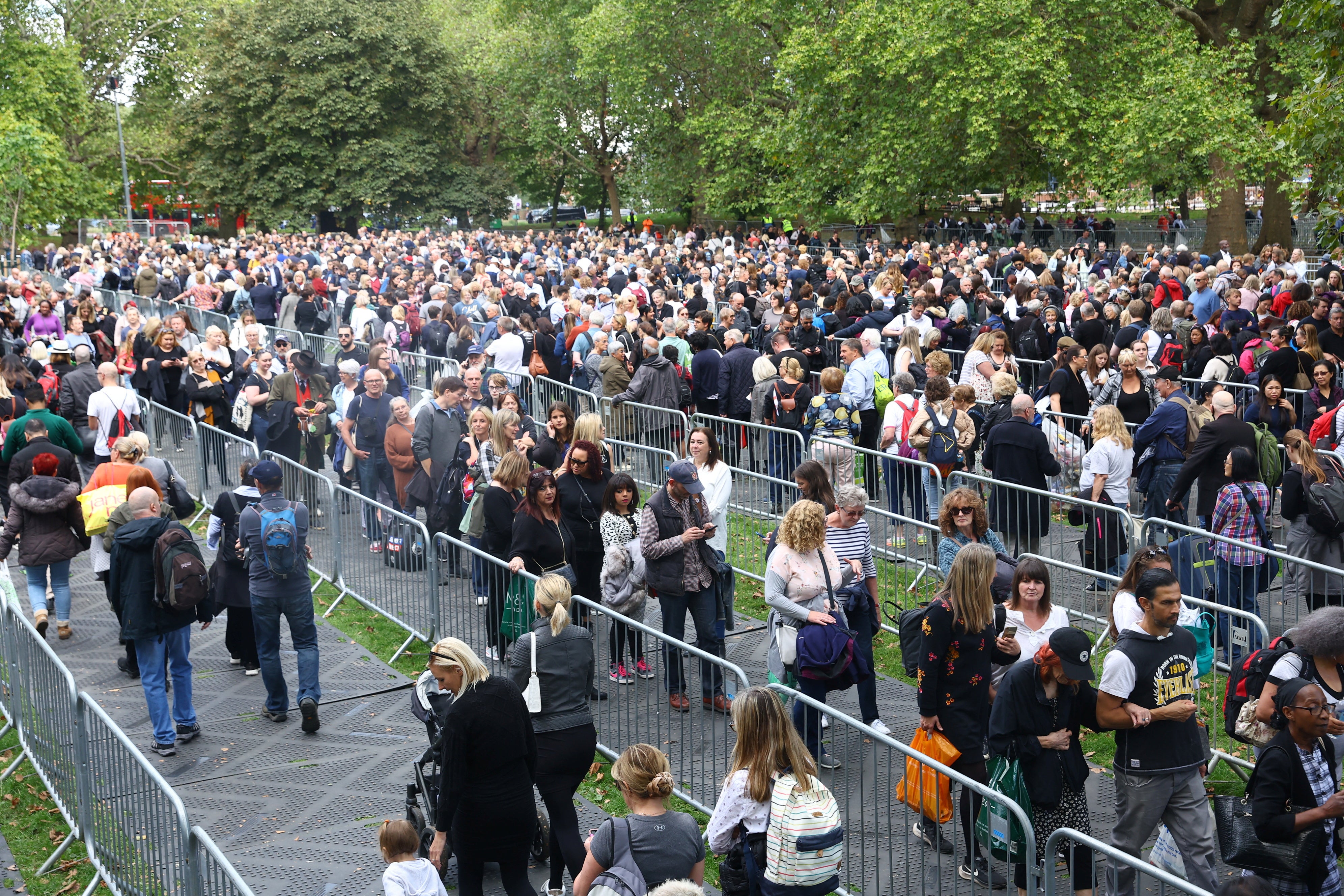The delicate diplomacy of the Queen’s funeral guest list
Transport and seating at Westminster Abbey presents special challenges, writes Sean O’Grady


The Queen broke many records in her long life and reign, and her funeral seems set to be another unprecedented event. Perhaps strangely, this is the first funeral to be held at Westminster Abbey since George II’s in 1760. Most royal funerals since have been small, simple family services at Windsor – those of George VI in 1952 and the Duke of Windsor, the former Edward VIII, in 1972. The other exception is Richard III, interred at Leicester Cathedral in 2015.
This is going to be a far more ambitious operation, with a formidable guest list. Because the House of Windsor, and its predecessors, followed the dynasto-diplomatic European tradition of intermarrying families for the purposes of building alliances, the Queen was related to almost every royal house in London, deposed or not. Indeed she married her (third) cousin, Prince Philip of Greece and Denmark, albeit for love, which added another dimension to the family tree.
So the first names on the guest list pretty much suggest themselves via DNA: Prince Albert II and Princess Charlene of Monaco, King Felipe and Queen Letizia of Spain, King Philippe and Queen Mathilde of Belgium, King Carl XVI Gustaf and Queen Silvia of Sweden, King Willem-Alexander and Queen Maxima of the Netherlands, King Harald V of Norway, and Queen Margrethe of Denmark. Emperor Naruhito of Japan will also be there. It will be the biggest assembly of mixed royalty for many years, and no doubt the now-deposed royals of Greece, for example, will attend as friends as well as family.
The rest of the list is really the responsibility of the Foreign Office, graded according to their usefulness to His Majesty’s government but balanced with royal sensibilities.
Next up are the leaders of the former Queen’s realms, such as Australia, which get an additional allocation of 10 tickets for suitably distinguished subjects. Anthony Albanese, Jacinda Ardern, Justin Trudeau, and many other “realm” and Commonwealth premiers will attend. However, there is no show from prime minister Narendra Modi of India, who is sending the president of India instead, and President Mnangagwa of Zimbabwe, who is sending his foreign minister. Mnangagwa was the victim of an internet hoax suggesting the British government had snubbed him.
Then there are the other friendly nations. As is only to be expected, American exceptionalism is in evidence as President Joe Biden and the first lady will be allowed to bring along their own armoured Cadillac, The Beast, while the rest of the world is expected to share luxury minibus transport. This, and the seating arrangements in the church, will present special challenges. The easiest way to smooth diplomatic feathers would be to seat the delegations in alphabetical order, but shoving the Israelis next to the Iranians or placing the Azeris in close proximity to the Armenians would be surely asking for trouble.
In fact, Iran joins North Korea and Nicaragua in being given a basic invite at “ambassadorial” level, rather than head of state or government, even though Iran doesn’t have an ambassador in London (a substitute has been found). On the other hand China, which enjoys now uneasy relations with the UK, will be sending a representative of President Xi, who is otherwise engaged. Interestingly, President Erdogan of Turkey may not be there, nor perhaps the prime minister of Israel (Turkey’s foreign minister Mevlut Cavusoglu, Israel’s president Isaac Herzog could be “coming off the bench” for the occasion).
Saudi Crown Prince Mohammed bin Salman will reportedly travel to London to deliver the kingdom’s condolences to the royal family, but no confirmation on whether he will attend the funeral. It is hard to picture him in the back of a Mercedes-Benz Vito people carrier, but there we are.
Then there are the pariahs. Leaders or ambassadors from Syria and Venezuela would not be invited because Britain does not currently have diplomatic relations with those states; Afghanistan is also not invited due to “the current political situation” according to the Foreign Office. The same, fairly obviously, goes for Russia, Myanmar and Belarus. By contrast President Zelensky of Ukraine, if he could spare the time, would be given the hero treatment.
All in all a decent turnout, and one at least the equal of the near-coterminous UN General Assembly. In the “margins” of the funeral no doubt little diplomatic manoeuvres will take place, and Liz Truss has already had a chat with Albanese and Ardern. She might even make time for President Macron at the reception. The Queen’s funeral will be a sad, spectacular event, then, but also one with some political meaning and consequence.



Join our commenting forum
Join thought-provoking conversations, follow other Independent readers and see their replies
Comments